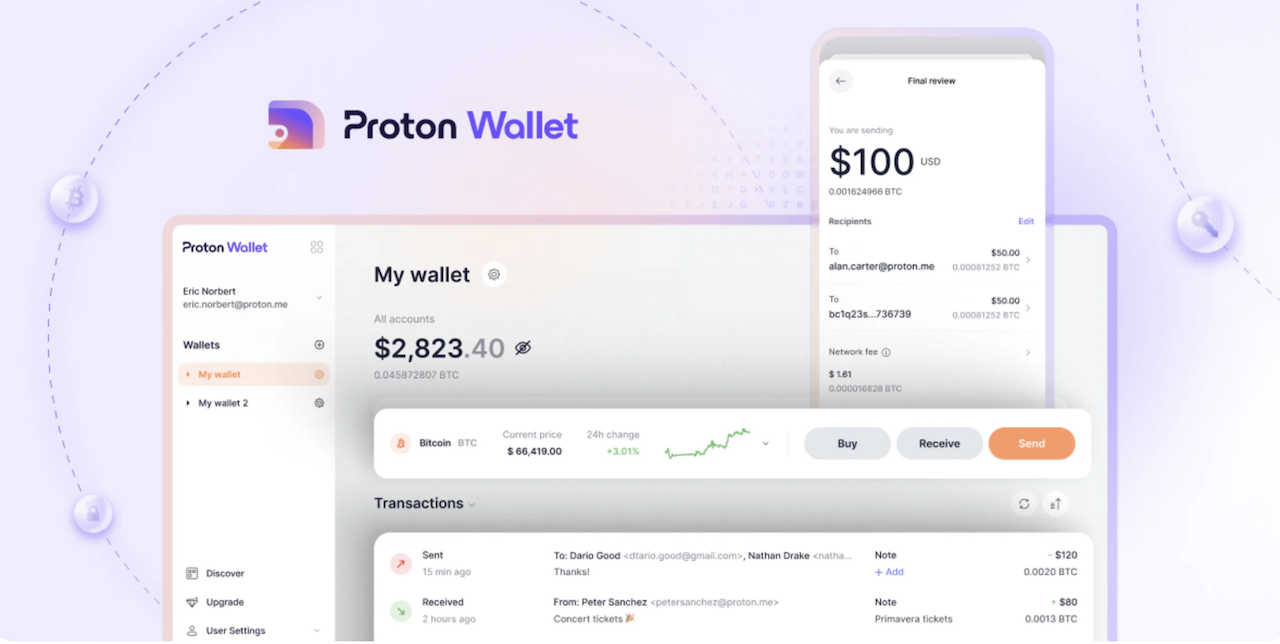
Proton Unveils Self-Custodial Bitcoin Wallet, Aiming to Revolutionize Crypto Accessibility
Proton, the Swiss privacy-focused technology company known for its encrypted email and VPN services, has launched Proton Wallet, a self-custodial Bitcoin wallet designed to simplify cryptocurrency transactions for mainstream users. This move marks Proton’s significant entry into the fintech space, leveraging its expertise in privacy and security to address common barriers to Bitcoin adoption.
The new wallet, initially supporting only Bitcoin, aims to make cryptocurrency transactions as straightforward as sending an email. By integrating with Proton’s existing encryption key management infrastructure, users can send and receive Bitcoin using email addresses instead of complex alphanumeric identifiers, potentially reducing errors and enhancing user experience.
Andy Yen, Proton’s founder and CEO, emphasized the wallet’s mission to democratize access to Bitcoin: “Proton Wallet’s ability to support Bitcoin via email now makes Bitcoin transactions as easy to use as PayPal, while preserving the decentralized and non-custodial nature of Bitcoin.”
Security and privacy are at the forefront of Proton Wallet’s design. The self-custodial nature of the wallet ensures users maintain full control over their private keys. Additionally, the wallet incorporates built-in two-factor authentication and an optional wallet passphrase separate from the user’s login information, providing an extra layer of protection.
Proton Wallet also features integration with Proton Sentinel, an AI-powered security program designed to detect and block sophisticated cyberattacks. This feature, previously used to protect high-risk users such as activists and journalists, now extends its protection to Proton Wallet users.
The wallet’s launch is part of a phased rollout, with initial access limited to Proton Visionary plan subscribers. These early users can invite others, and a waitlist is available for broader access in the future. Proton plans to expand the wallet’s capabilities based on user feedback, potentially including support for additional cryptocurrencies and fiat currencies, subject to regulatory approvals.
Proton’s entry into the cryptocurrency space is rooted in its own experience with traditional financial systems. In 2014, the company faced a near-shutdown when PayPal froze its crowdfunding campaign funds, leading Proton to adopt Bitcoin as an alternative payment method. This incident underscored the importance of financial independence for the company.
While Proton emphasizes that it is not primarily a crypto company and does not engage in cryptocurrency speculation or exchange services, it sees Proton Wallet as a strategic move to enhance financial freedom and privacy for its users. The company’s established user base of over 100 million accounts across its various services could potentially accelerate Bitcoin adoption among privacy-conscious individuals.





